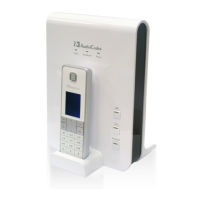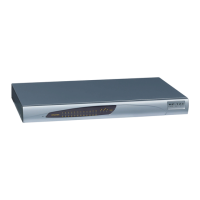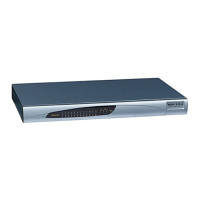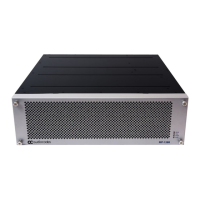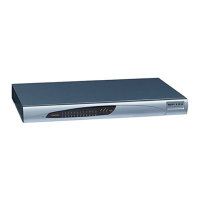CHAPTER25 Routing
Mediant 1000 Gateway & E-SBC | User's Manual
Parameter Description
■ Table index entry 1 is defined with Forking Group "1",
index entry 2 with Forking Group "2", and index entries 3
and 4 with Forking Group "1": The device first sends the
call according to index entries 1, 3, and 4 (all belonging to
Forking Group "1"), and if the destination is unavailable
and alternative routing is enabled, the device sends the
call according to index entry 2.
■ Table index entry 1 is defined with Forking Group "1",
index entry 2 with Forking Group "3", index entry 3 with
Forking Group "2", and index entry 4 with Forking Group
"1": The device first sends the call according to index
entries 1 and 4 (all belonging to Forking Group "1"), and if
the destination is unavailable and alternative routing is
enabled, the device sends the call according to index
entry 2 (Forking Group "3"). Even if index entry 2 is
unavailable and alternative routing is enabled, the device
ignores index entry 3 because it belongs to a Forking
Group that is lower than index entry 2.
Note:
■ To enable Tel-to-IP call forking, set the 'Tel2IP Call
Forking Mode' (Tel2IPCallForkingMode) parameter to
Enable.
■ You can configure the device to immediately send the
INVITE message to the first member of the Forking
Group (as in normal operation) and then only after a user-
defined interval, send the INVITE messages
simultaneously to the other members. If the device
receives a SIP 4xx or 5xx in response to the first INVITE,
it immediately sends INVITEs to all the other members,
regardless of the interval. To configure this feature, see
the ForkingDelayTimeForInvite ini file parameter.
■ You can implement Forking Groups when the destination
is an LDAP server or a domain name using DNS. In such
scenarios, the INVITE is sent to all the queried LDAP or
resolved IP addresses, respectively. You can also use
LDAP routing rules with standard routing rules for Forking
Groups.
■ When the UseDifferentRTPportAfterHold parameter is
enabled, every forked call is sent with a different RTP
port. Thus, ensure that the device has sufficient available
RTP ports for these forked calls.
'Cost Group'
cost-group-id
[PREFIX_CostGroup]
Assigns a Cost Group to the routing rule for determining the
cost of the call (i.e., Least Cost Routing or LCR).
By default, no value is defined.
To configure Cost Groups, see Configuring Cost Groups.
Note: To implement LCR and its Cost Groups, you must
enable LCR
- 592 -
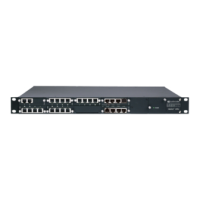
